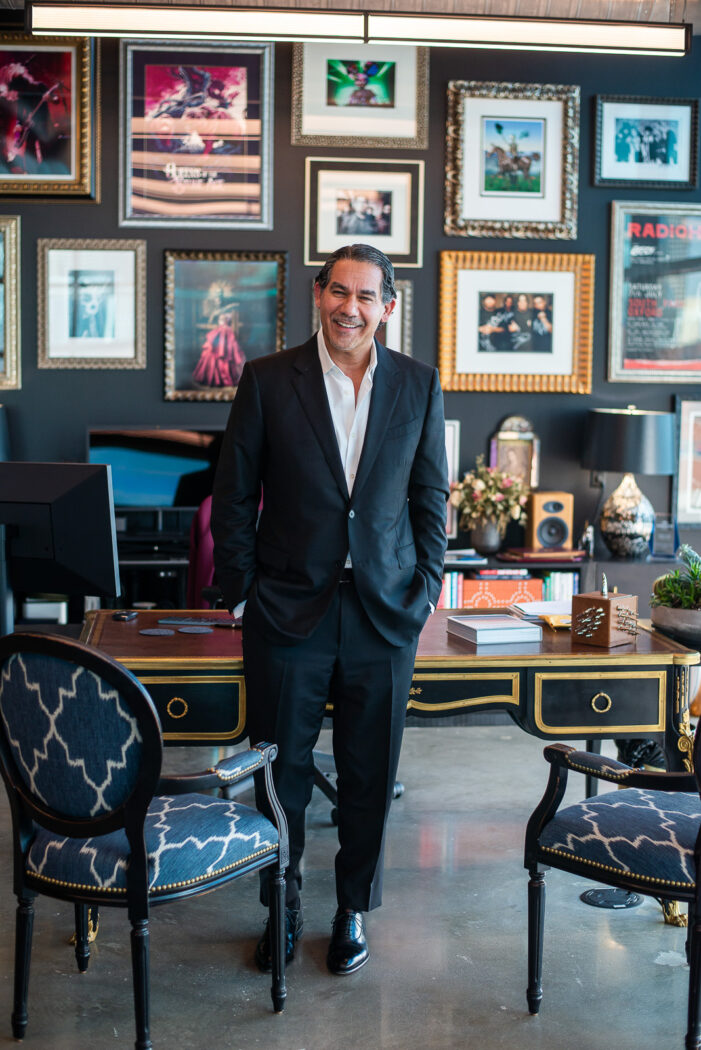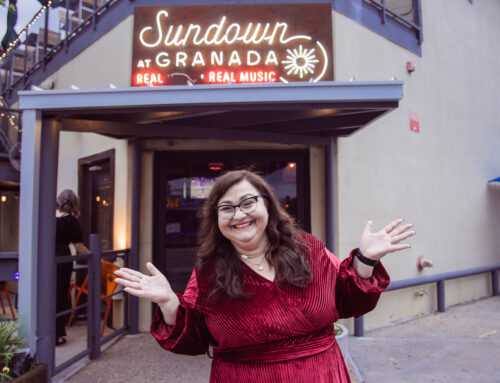
Pedro Lerma was born in Dumas, Texas, a pass-through town from Dallas to Colorado.
“Lots of people tell me, ‘We drove there on our way to go skiing,’” he says.
He grew up in Wichita Falls. His father worked as a concrete construction worker and his mother in a meatpacking plant.
While at Midwestern State University, he started selling airtime to local businesses at a radio station to help pay tuition before working at an agency.
“I tell people that at some point, when you grow up in Wichita Falls, and it’s time to move to the big city, you move to Dallas,” Lerma says. “And so, I moved to Dallas.”
In the late ‘90s and early 2000s, working at an advertising agency in Dallas was a slick job. Lerma would pour over Ad Age and Adweek. Temerlin McClain, Tracy-Locke and the Bloom Agency were some of the biggest names in advertising. An independently-owned Richards Group was the one everyone was talking about — the most awards, the most press and biggest clients.
He decided that’s where he was going to work.
His resume was a mock-up of Adweek picturing Lerma with his hands held up in front of the original Richards Group building. The headline: “Lerma joins the Richards Group. Has the competition scrambling.”
He got a call back, a few interviews and a job.
“And it was really cheesy when I think about it, but it was enough to set me apart,” Lerma says. “I’m not sure that would work on me now.”
The dot-com bubble had just burst, and digital advertising was in the early stages. Digital simply meant building websites, banner ads and emails. The Richards Group only had 10 people working on digital advertising, Lerma being one of them. He came up with enough ideas and strategies that he was shifted into a leadership position after a few years. Eventually, the digital group was one of the largest specialized disciplines.
“In a lot of ways, it is a blank slate, and from the digital marketing perspective, you could make it whatever you wanted to,” Lerma says. “But I also feel like I was given a blank slate within the organization.”
They built a Myspace page for Travelocity. They created a blog for Dr Pepper’s shelf-stable milk Raging Cow and recruited bloggers to write about the product. Call it pre-influencers.
“We were really pioneering, breaking new ground, and in a lot of it was really the unknown,” Lerma says. “But it was a great period in my career.”
Eventually, digital was unilaterally integrated into departments, and Lerma became a principal at the agency. So in 2009, Stan Richards and Lerma started an offshoot Hispanic-focused agency called Richards Lerma. Their first year, they were $70,000 short of break-even.
The agency has been profitable ever since, Lerma says.
On the agency’s 10th anniversary in 2019, the agency rebranded to Lerma/ just before the COVID shutdown. And just before Richards made offensive comments in an internal meeting that caused droves of clients to leave. Lerma says he bought out Richards, and several clients like Avocados from Mexico, Interstate Batteries and the Salvation Army stayed with him.
There were different phases for the agency. There was a time when there was an office with 30 people in Mexico City to support the Chrysler Mexico account, making the team about 95 people. After parting ways with Chrysler Mexico, and with T-Mobile consolidating its marketing efforts after they purchased MetroPCS, Lerma/ staff whittled down to about 40 people.
In 2022, Lerma/ won Small Agency of the Year from Ad Age for companies with 15-75 employees and again in 2023 for companies with up to 150 employees.
“I feel like there was a point where I used to dream about being part of the Richards Group and seeing them in the press all the time,” Lerma says. “I feel like we’re in that position now. And it’s gratifying.”
AdWeek recently recognized Lerma/ as the finalist for multicultural agency of the year. The agency has evolved from being a Hispanic agency to a cross-cultural lead agency.
“We feel like we’ve got an advantage and that we started as a multicultural agency and have adapted, I guess what I would say to non-multicultural capabilities and talent,” he says. “And as the market becomes more multicultural, we are in a good position to help clients navigate the more multicultural future.”
About 60% percent of the agency’s work is digital, and a good chunk of the remaining percentage is television, radio and outdoor, with a much smaller percentage print work. The agency created three Super Bowl LVII spots. Its annual revenue is sitting at about $30 million, Lerma says.
Construction to nearly double the office space, housed in the Lumin building in the West End, from 25,719 square feet to 55,918, is ongoing. The dark industrial space includes a full stage for concerts. Lerma, who wanted to be a drummer, says he was never good enough to make a career out of it.
Incidentally, his 16-year-old son is a drummer at Booker T. Washington Arts Magnet High School in Dallas.
“He is good enough if he wants to,” Lerma says. “And if he focuses, he’ll be able to make a living doing it.”
His wife Jennifer Needham grew up in Wichita Falls and went to Midwestern State University but never met him. Lerma, Needham, their 11-year-old daughter, son and four dogs live in the house Clifford Hutsell designed for himself on Lakewood Boulevard.
The first time Lerma saw the home, he was driving down the street. He saw one of his colleagues from the Richards Group in the front yard. He spent an hour learning about the history and looking at a restored mural. In 2022, he bought a Hutsell four doors down, but there were homebuyers interested in buying the house he just bought. Then he heard that Clifford’s Hutsell was possibly for sale.
He sold the first house before even living in it and bought Clifford’s house.
“I would drive down that street dreaming and looking at these homes, these beautiful homes, the tree-lined streets,” he says. “I remember being a child and seeing those kinds of streets where the trees would meet over the street and it just felt magical. And that’s what you have in Lakewood.”





